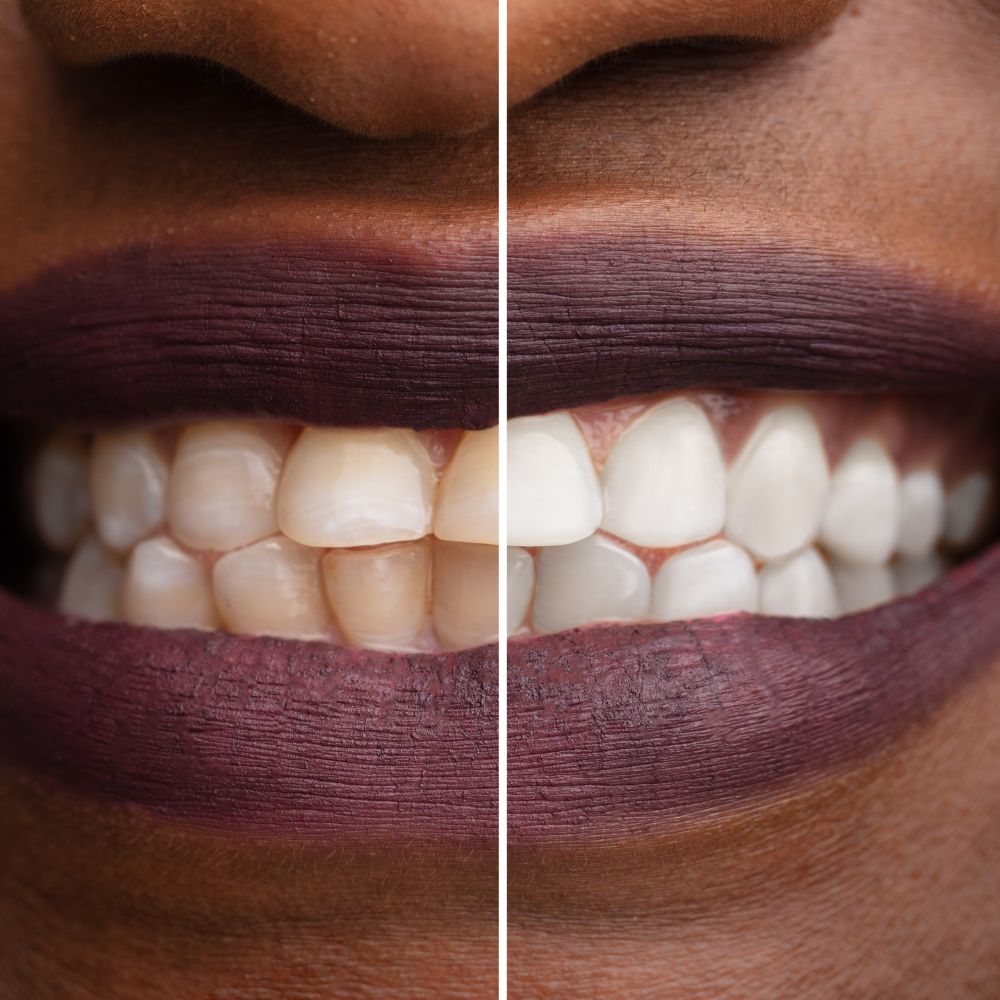Teeth whitening and oral health: what you should know

A bright smile is an important beauty feature for many people. It conveys self-confidence and well-being. So it's not surprising that teeth whitening is one of the most popular cosmetic procedures in dentistry. But how does teeth whitening affect oral health? In this blog post, we'll take a closer look at the connection between teeth whitening and oral health and provide important information about what you should know.
What is teeth whitening?
Teeth whitening, also known as bleaching, is a procedure to lighten the teeth to reduce or remove stains and impurities. There are several methods of teeth whitening, including professional in-office treatments at the dentist, home products such as whitening kits, whitening strips and toothpastes.
The connection between teeth whitening and oral health
Teeth whitening can have positive effects on oral health when done correctly. Here are some important points to consider:
1. Teeth whitening can keep teeth healthy: Many teeth whitening procedures do not damage tooth enamel. In fact, some whitening agents can strengthen tooth enamel and help teeth be more resistant to cavities.
2. Improve oral hygiene: People who are conscious of their whitened teeth often tend to improve their oral hygiene. This can lead to better health of teeth and gums.
3. Confidence and self-esteem: A bright smile can boost self-esteem and encourage people to take their oral health more seriously and keep regular dental visits.
4. Professional advice: Before you start teeth whitening, you should consult your dentist. They can give you the best recommendations for your individual needs and make sure you do not have any underlying problems that need to be treated.
Risks and precautions
Although teeth whitening offers many benefits, there are also some risks and precautions to consider:
1. Sensitivity: Some people experience temporary tooth sensitivity after teeth whitening. This is usually temporary and can be alleviated by using toothpastes for sensitive teeth.
2. Avoid over-whitening: Excessive teeth whitening can cause temporary sensitivity or permanent damage. Always follow your dentist's instructions or the manufacturer's recommendations.
3. Not suitable for everyone: Teeth whitening is not suitable for everyone. Pregnant women, people with certain dental problems or allergies should consult their dentist before use.
4. Long-term results: The results of teeth whitening are not permanent and need to be refreshed regularly, especially if you maintain stain-causing habits such as smoking or consuming highly staining foods and drinks.
Conclusion: A balance between aesthetics and health
Teeth whitening can help achieve a bright smile and boost self-confidence. When used correctly and following your dentist's recommendations, it can also support oral health. However, it is important to find a balance between aesthetics and health. Be sure to take regular care of your teeth, see your dentist, and know the risks and precautions of teeth whitening to ensure long-term oral health and a bright smile.




